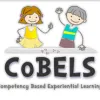Take a look inside 5 images
CoBELS
Pros: Some games use puzzles to solve realistic problems, while students create their own equations or representations of the patterns they see.
Cons: Teachers have to carefully select tasks, as games vary wildly in engagement and educational quality.
Bottom Line: CoBELS makes third- through eighth-grade science and math relevant with fun but uneven games.
CoBELS is best used when teachers pick targeted activities. Games are aligned to India's National Curriculum, but by trying the tasks themselves, teachers can find games that meet certain Common Core Math Standards. Students will need headphones since the games have music and narration. Teachers can use the dashboard to assign games to individual students or to the whole class, which is helpful for differentiation with struggling or advanced learners.
CoBELS lets students construct their own math and science ideas by playing games. Students can learn about math topics such as algebra, data analysis, geometry, fractions, decimals, and symmetry. Science topics include animals, plants, water, and space.
Each of the games, such as Polygon Perimeter, begin with a short introduction and a few examples. Students build on that knowledge as they play the game and figure out their own equations for different polygons. In Sheep Barn, students figure out how to keep the sheep from escaping by determining the number of missing portions of fence and the amount of wood needed. Instant feedback and game scores help kids know how they are progressing.
CoBELs attempts to help students use math and science to make sense of the world, and in some cases it succeeds. In Sheep Barn, students collect data, fill out a table, and drag in fence parts all while sheep keep running away. A narrator encourages students to look for patterns in their data so they can work more quickly. This game brings a pretty standard word problem creatively to life, but not every game is that fun. In Polygon Perimeter, the game component is a slowly filling beaker as you get problems correct. With enough right answers, a circuit is completed and lightbulbs light up. Immediate feedback lets kids see if they get problems wrong or right, but they don’t have a chance to correct their mistakes. This game isn't very fun, but the math task itself is interesting and challenging.
Meanwhile, some games miss opportunities to delve deeply into the content at hand. Plant Power is a fun game where kids have to quickly scoop up pollutants without grabbing the ingredients plants need for photosynthesis. The introduction provides accurate science information, but the game doesn't really help kids understand why plants need those ingredients.















